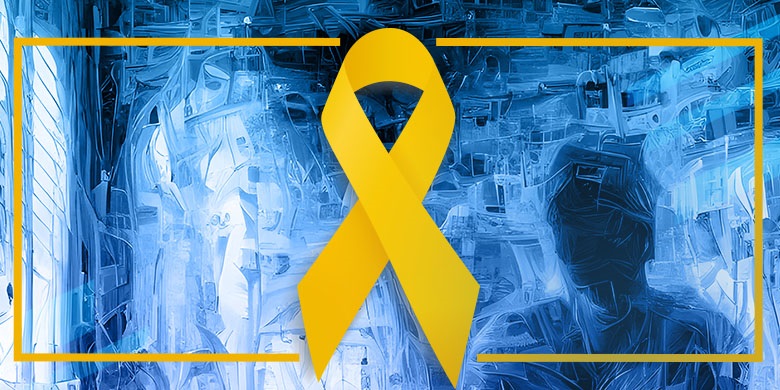Last updated on August 8, 2023
If you are thinking about suicide, there is immediate help available. To speak with a crisis counselor 24/7, call the 988 Suicide & Crisis Lifeline by dialing 988. In case of an emergency, please call Dallas College Police at 972-860-4290 from any phone, or dial 911 on a campus phone. If you are off campus and have an emergency, dial 911.
Did you know that suicide is the second leading cause of death for 20- to 34-year-olds? It’s also the third leading cause of death for adolescents. That’s why Dallas College Counseling and Psychological Services (CAPS) is committed to providing resources and training for suicide prevention, including the free, one-hour “AS+K About Suicide to Save a Life” gatekeeper training.
In this Q&A, Dallas College’s Counseling and Psychological Services (CAPS) shares more about the importance of suicide prevention and why students should participate in AS+K.
What is the “AS+K About Suicide to Save a Life” gatekeeper training, and what can someone expect to learn from it?
AS+K stands for: Ask about suicide. Seek more information. Stay safe. Know resources.
We start off the training with statistics and the safe language to use when it comes to suicide. Language is important, especially when we’re having a conversation with someone that we’re concerned about. The main premise is to teach people how to ask somebody you know, “Are you thinking about suicide?”
We want participants to have the confidence to be able to say the word suicide, because a lot of people are uncomfortable with it. We try to engage people in saying those words and in practicing how they would ask somebody. It needs to be direct because there’s no indirect way to ask that’s effective.
The training also covers warning signs, risk factors and protective factors. Protective factors are things in a person’s life that help with resiliency, problem-solving and connectedness to others.
Finally, we cover the importance of connecting our students to different resources on campus. We give information about how to do that, as well as how to connect them to resources outside of campus.
What are some risk factors and warning signs to look out for?
There are hundreds of risk factors, but there are about four or five that are primary:
- Having a history of mental illness
- Having a history of substance use
- Having a previous attempt
- Having a family member who made an attempt
- Access to means
Remember, a risk factor doesn’t determine that you’re going to attempt suicide — it also depends on protective factors.
There are other risk factors like being members of certain communities, for example: BIPOC populations, LGBTQ populations, military connected individuals, people experiencing a loss or first responders.
If you notice that someone has been in a slump, hasn’t been able to pull it together but all of a sudden, they change — they become positive, really upbeat and want to get together suddenly — that can be a warning sign.
Additional warning signs can be someone giving things away or saying goodbye on social media. That person has made a decision, and they feel like it’s a solution. However, it’s not. It’s a permanent answer to a temporary situation.
What is the best way someone can help a loved one who may be displaying these warning signs?
Share with them what you’ve observed. Usually when we ask people, “How are you doing?” people say, “I’m fine.” And if we leave it there, we don’t offer that opportunity for them to see that we want to connect them to care. If you’ve noticed changes, share that with them. “It seems like you’ve been absent a lot.” “I’ve noticed you’re not as engaged in this organization as you used to be,” etc.
Depending on your relationship with this person, it’s really important to ask: “Are you thinking about suicide?” Sometimes people think asking will put that thought in their head, but there’s no evidence that shows that. It’s a way to offer them hope because maybe nobody’s asked them before.
Are there other mental health resources or training you would recommend?
Dallas College offers Mental Health First Aid training almost every Friday.
The Texas Suicide Prevention website also has links to free trainings.
To sign up for AS+K, Mental Health First Aid or other trainings offered at Dallas College, visit the CAPS website.
Additional suicide prevention resources and information can be found on the CAPS Suicide Prevention and Awareness website.
